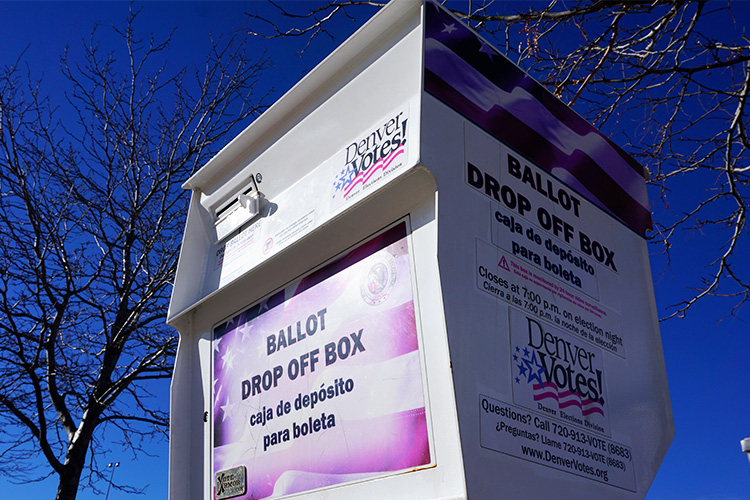
Colorado’s primary election could have been disrupted by the Supreme Court’s ruling on Trump v Anderson. photo by Farah Djama
The court case Trump v Anderson might have had an immense and controversial impact on the 2024 presidential election.
In September of 2023, six Colorado voters filed a court case stating that former US President Donald Trump had committed insurrection and therefore was ineligible to be on the Colorado primary ballot. The group of Colorado voters, consisting of four Republicans and two unaffiliated voters, claimed that Trump had engaged in insurrection on January 6, 2021, when he organized and incited his supporters to storm the Capital to prevent Congress from certifying the results of the 2020 election. The Colorado Supreme Court agreed with the voters, but Trump appealed the decision. The case went to the Supreme Court, who eventually sided with Trump.
In their argument, the Colorado voters cited Section 3 of the Fourteenth Amendment, which prevents any officer of the United States who had previously taken an oath to support the Constitution and who then “engaged in insurrection or rebellion against the same” (meaning the Constitution) from holding office again. This amendment was put into place after the Civil War and, as James Stephenson, the AP Government teacher at Thomas Jefferson High School, explained, “…The original intent of the amendment [was] to bar former confederates from holding office.” Though Trump’s situation is different, the Colorado voters argued that Section 3 still applied.
According to AP News, in November of 2023, a Denver state trial court found Trump guilty of insurrection. However, the judge found that Section 3 did not apply to the president and allowed Trump to stay on the Colorado ballot. The plaintiffs appealed this decision, and the case made its way to the Colorado Supreme Court, who decided in a 4-3 decision that Section 3 did apply to the presidency, meaning that Trump was disqualified from Colorado ballots. Again the ruling was appealed, this time by Trump. CBS News reported that on January 5, 2024, the Supreme Court agreed to hear the case. The justices heard arguments on February 8, 2024 and on March 4, one day before the Colorado primaries, they issued their ruling.
In their ruling, the Supreme Court unanimously decided that the Colorado Supreme Court’s verdict was wrong and Trump should be allowed to stay on the Colorado Ballot. The court did not comment on whether or not Trump had engaged in insurrection; instead, their ruling was based on the interpretation that states are only able to disqualify candidates running for state office. The Supreme Court decided that only Congress has the power to disqualify presidential candidates under Section 3. Though the decision was unanimous, the three liberal justices, Sonia Sotomayor, Elena Kagan, and Ketanji Brown Jackson, filed a separate, concurring opinion. In addition, justice Amy Coney Barrett filed a different concurring opinion. Through these, the justices expressed their views regarding the case.
Since the Supreme Court ruled that Trump is allowed to stay on the Colorado ballot, the outcome of this case will not have that much of an impact on the election except allowing it to continue as it would have if the case had not been filed. However, since the Supreme Court made no decision on if Trump committed insurrection, Congress would be able to disqualify him from national ballots if they found him ineligible to run under Section 3. This would cause widespread chaos and controversy, but if Congress decided that this was the best action to take in order to uphold the Constitution, they might find it worthwhile.